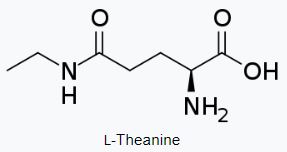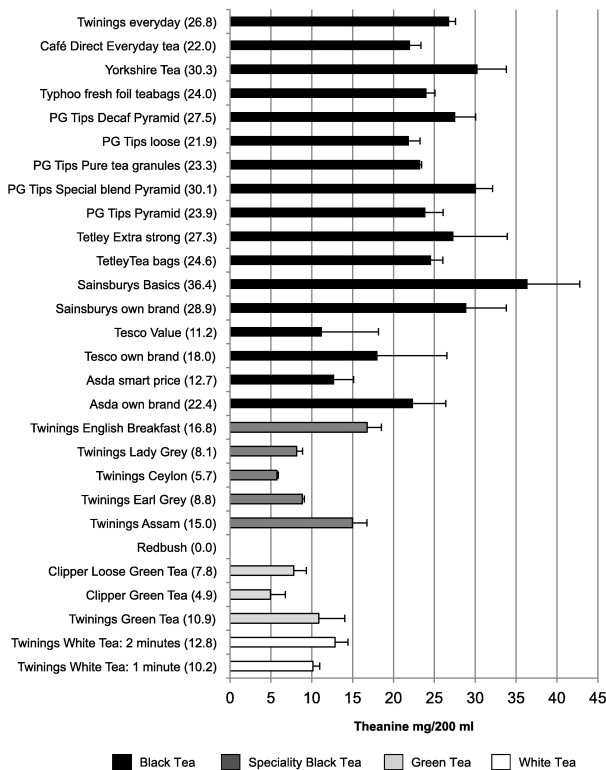After water, tea is the most widely consumed beverage in the world. It contains a unique amino acid called L-theanine that has several beneficial effects on our brain because it increases the levels of some hormones and neurotransmitters that make us feel good.

Theanine increases molecules that affect mood
Serotonin – makes us feel calm and content. Low serotonin levels are highly linked with depression. Most of the serotonin we produce is made in the digestive system when we eat, this is why we feel so good and content after eating. The serotonin produced in the digestive tract travels through the blood to the brain and tells the brain we feel good. This is a survival benefit because we associate eating and acquiring nutrients with feeling good….also, it may be one reason why some people use food for comfort. Perhaps tea can help reduce the need for comfort food because the theanine in the tea can increase serotonin.
Dopamine – This is our drive and motivation hormone. If you have ever had to drag yourself out of bed and make yourself complete tasks you don’t want to do, then you have experienced low dopamine. When you feel alert and driven and motivated, then you have high dopamine. So even though tea has much lower amounts of caffeine compared to coffee, tea can be stimulating because of its effect on dopamine. For comparison, an average cup of tea contains approximately 10-15 mg of caffeine, whereas coffee contains anywhere from 150-350 mg. Here is a link to a chart listing the amount of caffeine in various types of coffee. Caffeine chart. Coffee increase alertness by inhibiting adenosine, which is a molecule that makes us tired, and excess amounts of caffeine can make us feel jittery and can reduce cognitive functions. Theanine affects dopamine so it is stimulatory in a different way that does not cause the jittery caffeine feeling.
GABA and glycine – Gamma aminobutyric acid and glycine are both inhibitory neurotransmitters that helps to reduce the over-stimulating effects of glutamate. GABA and glycine are your anti-anxiety neurotransmitters that make you feel calm but still alert! If you have any kind of stressful event that is making you feel anxious, for example, writing an exam, then a cup or 2 of tea beforehand may be a great way to help reduce anxiety-promoting glutamate….you may need to pee afterwards but you will be calm and alert. Theanine easily crosses the blood-brain barrier and will have a peak effect within 30-120 minutes.
Theanine may increase cognitive function
Studies show that theanine can also increase BDNF – Brain-derived neurotrophic factor, in the hippocampus, which is the region of the brain that is highly involved with long term memory. A clinical trial in 2019 showed that daily doses between 200-400mg have significant ant-stress effects in acute and chronic anxiety conditions and has promising therapeutic potential.
How much theanine is in tea?
A cup of black tea will contain anywhere from 20-30mg, green tea has around 10mg. 2 cups of tea would provide enough theanine to notice a mild reduction in anxiety. Theanine can be taken in capsule form, they usually come in 200-250mg doses and they are safe to a dose up to 1200mg per day. Studies have shown that the amount in 2 cups of tea is enough to increase alpha wave activity, measured by electroencephalograph (EEG), which indicates the brain is relaxing yet it does not induce drowsiness. Alpha waves are also known to play a critical role in attention and alertness, ideal when you want to feel more relaxed but still be able to think clearly!
Here is a chart that shows the amount of theanine in various brands of tea.


